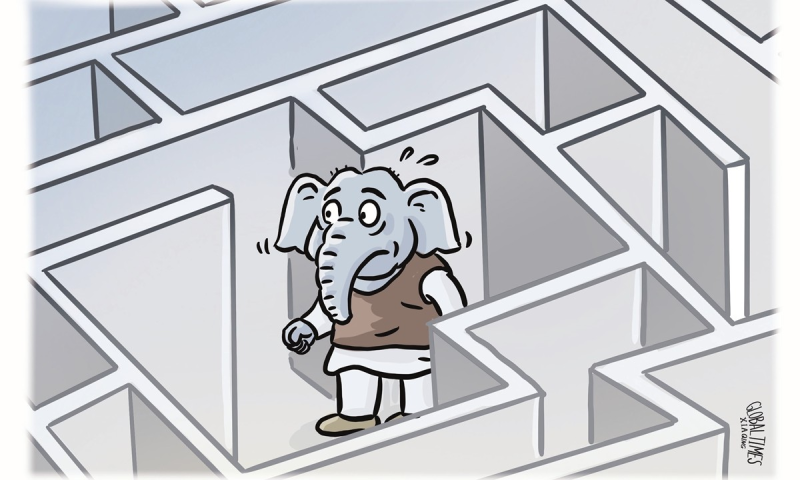Liu Zongyi Interviewed by Global Times
Liu Zongyi source:Global Times
source:Global Times
Illustration: Xia Qing/GT
Without a doubt, the global order is undergoing a transformation. China's official characterization describes this as "profound changes unseen in a century." The driving force behind changes in the global order is primarily the rise of China and developing countries, or emerging economies. Correspondingly, there is the relative decline of the US and the West.
The global order, now undergoing profound changes, was formed after World War II, nominally an international order centered on the UN. However, in reality, for most of the time since this order's formation, it has been an international order dominated by the US and the West. For developing countries, this global order is unfair, which is why, since the 1960s-70s, developing countries have demanded the establishment of a new political and economic order.
But developing countries did not adopt radical means to demand the complete overthrow of the US and West-dominated world order. Instead, they have requested that the US and the West undertake gradual reforms. The Group of 77 and China, Shanghai Cooperation Organisation (SCO), and BRICS have all made such demands, hoping to promote gradual reform of the global order. Although the existing global order has its unfair and unreasonable aspects, developing countries believe that the establishment of the UN represents human progress and that multilateralism truly centered on the UN should be realized. However, from the perspective of the US and the West, developing countries, including China, are all "revisionists."
China and other developing countries merely hope to promote gradual reform of the existing order to make it more just and equitable and truly achieve multilateralism. What the current US administration has done is abandon all those international mechanisms and rules that the US itself established but no longer serve its interests. The uncertainty of US policy and the chaos it has caused have led to turmoil in many parts of the world. Some countries, in order to follow the US, disregard right and wrong, turn black into white, and continuously claim that China's rise is causing regional instability.
As major developing countries, both China and India hope to achieve world multipolarity. China hopes to build a community with a shared future for humanity, while India hopes to achieve a "multipolar Asia and world," with multipolar Asia being the prerequisite for a multipolar world. From this perspective, India's vision for multipolarity has grown increasingly apart from the US': For today's Washington, it may only hope to achieve a tripolar world led by China, the US and Russia. When Indian Prime Minister Narendra Modi flew to Washington to meet US President Donald Trump in February, the conditions the US proposed were already very clear:
First, the US demanded India strengthen defense cooperation with the US at various fronts. What the US implied was that in terms of security strategy, India should actively share obligations for the US in the Asia-Pacific region, like Japan, paying from its own pocket and contributing personnel and resources to coordinate with the US' strategy to contain China. Second, the trade deficit problem must be resolved, in the US' favor. Third, India must purchase more weapons, equipment, and oil and gas from the US. Fourth, India must help the US solve the problem of Indian immigrants.
It is very clear that the US hopes India will become its "junior partner." India, however, considers itself a "strategically autonomous" country. This can be shown from India's tough position in the tariff issue with the US.
Currently, China and India are cautiously rebuilding ties. Modi's attendance at the SCO Summit in China in early September is largely seen as the culmination of efforts by India and China to reset bilateral relations. Direct flights between the two countries are set to resume at the end of October for the first time in five years. Actually, such rapprochement offers greater space for India's role in the future global order. The role is not about replacing any single power but about being a crucial, independent country whose alignment and partnerships will be vital in addressing global challenges, from climate change and digital governance to regional security.
Any country's hope of exploiting China-US geopolitical competition to achieve "rising amid chaos" may never be realized. But sticking to the global trends of multilateralism and aiming to build a fairer and more just global order can certainly help reinforce a country's position in this order.
The choice is in India's hands.


